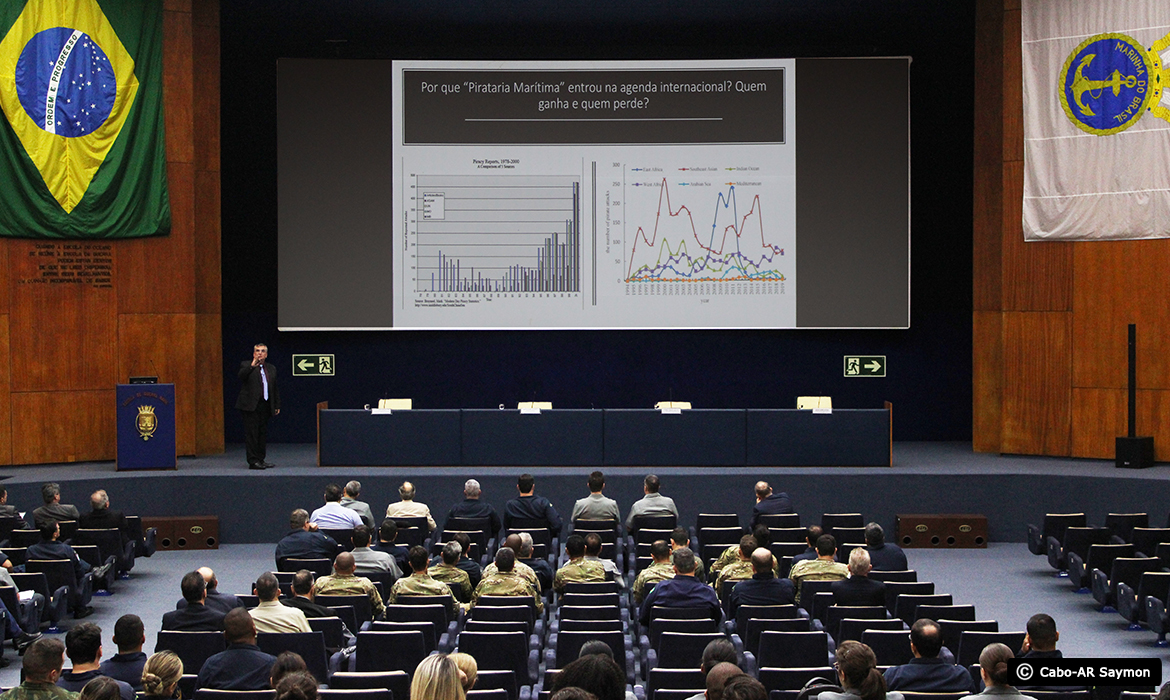Conference was held at the Naval War College (Escola de Guerra Naval)
First-Lieutenant (RM2-T) Thainã Deroci Fonte – Rio de Janeiro, RJ
Brazil is increasingly participating in naval operations and exercises together with other countries in the maritime strategic environment. During these operations, the use of Brazilian Navy (Marinha do Brasil – MB) resources are directly impacted by national legislation and international law. Moreover, when it comes to combating maritime piracy, some difficulties are faced due to the lack of clarity in the typification of this transnational crime. It was with the purpose of thinking more carefully about the legal possibilities and limitations for the use of Navy resources to combat piracy and Maritime Security Operations, that the Center for Political and Strategic Studies of the Navy (CEPE-MB) held a colloquium at the Naval War College (Escola de Guerra Naval – EGN), in Rio de Janeiro, on Thursday, May 26.
One of the topics discussed was the participation of MB means in maritime security operations and exercises, presented by the Commander of Maritime Operations and Protection of the Blue Amazon, Rear-Admiral Gustavo Calero Garriga Pires, who, at the end of his presentation, called attention to Brazil’s image abroad during these operations, “the Brazilian Naval Power, represented by the Brazilian Navy, is an important tool to show our value abroad, being recognized by international organizations.
Another subject presented in the colloquium was the MB experience in the United Nations Interim Force in Lebanon (UNIFIL). The Superintendent of Education at EGN, Rear Admiral Eduardo Augusto Wieland, highlighted the lessons obtained in the operation. “It is important to keep in mind that maritime operations cannot be only to check illegal activities. Our presence in Lebanon deterred the illegal entry of weapons, but we also saw economic activities flourish,” the Admiral commented during his presentation.
The gaps and convergences of Brazilian legislation on maritime piracy were also addressed by Captain André Panno Beirão, Professor of the Graduate Program in Maritime Studies, who pointed out the lack of more precise laws on the subject. “If today, in Brazil, effectively someone who committed the crime of piracy was caught and handed over to the police, there would be no crime foreseen in the law for him”.
Before the closing, a debate moderated by the Superintendent of Research and Post Graduation of the EGN, Rear Admiral Marcio Magno de Farias Franco e Silva, took place, with the purpose of discussing the theme.
Marine News Agency *** Translated by DEFCONPress team ***
